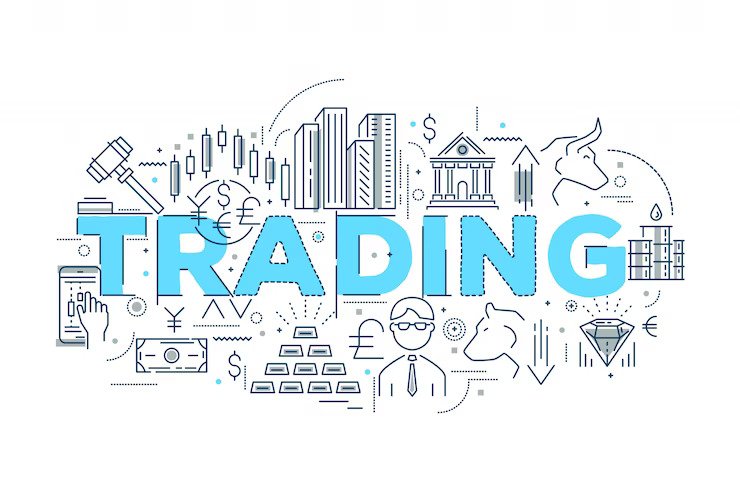Institutional trading refers to the process of buying and selling financial assets on behalf of institutions – usually large ones such as banks, mutual funds, pension funds, and hedge funds.
Institutional trading has been around for a long time, and these professional traders are usually employees at these institutions whose sole focus is to buy and sell assets for their company.
Institutional traders trade in large volumes – much larger than the average retail trader does – and they have specialized financial tools and technologies to help them execute more complex strategies. They can also use third-party tools to help them execute trades more efficiently and quickly, allowing them to increase their chances of success in the financial markets.
In this short guide, we will discuss how institutional trading differs from retail trading, how it works, and why people become institutional traders. We will also outline the kind of requirements you should typically have if you are currently a retail trader who wants to become an institutional trader.
How institutional trading differs from retail trading
One of the main differences between institutional trading and traditional retail trading is the scale of operations. When an individual decides to be a retail trader, they most likely do not deal in large volumes, unless they have the capital. Whereas those who participate in institutional trading are considered professionals and tend to deal in large volumes. This means their trades have the potential to move markets and change the financial market landscape.
Institutional traders also primarily differ from retail traders in terms of the tools and technology they have access to. Institutional traders often work in the banks, hedge funds, and mutual funds they trade on behalf of, so they have access to specialized financial tools and expert research from professional analysts. On the other hand, retail traders are limited to making informed decisions based on public research and real-time price charts.
How institutional trading works
Institutional trading works in the same way as retail trading does. Traders buy and sell financial assets in dynamic markets, hoping to potentially make a profit from fluctuating prices.
Institutional trading focuses on, first and foremost, volume in trading. Traders deal in large volumes through sophisticated trading strategies, and they use advanced research and analysis tools. This enables them to make the most informed trading decisions they can make, and it helps them to increase the chances of generating significant returns for their clients, organizations, or even for themselves.
Benefits of institutional trading

Many financial professionals find it appealing to trade on behalf of clients and institutions for a few reasons: they are experts at trading and investment, the job has the potential to be a lucrative career, and it is a fast-paced environment they enjoy.
As for the benefits of institutional trading as an activity, it is appealing because traders can access advanced trading technology that is usually provided by the organization they work for. This means they can trade much more efficiently. They can also be a helping hand in creating better liquidity and pricing in financial markets due to the high volume of trades they make daily.
How can one become an institutional trader?
If you are a retail trader who is keen on trading on behalf of large institutions and becoming a professional, it must be said that this route is a difficult one. Institutional traders must have a higher level of expertise and experience in the financial markets, precisely because they deal in such large volumes. Their trades are high stakes, and they trade with money that they most likely do not own.
To become a professional and trade for companies and organizations, you must also ensure that you have the qualifications and certifications needed to become a registered institutional trader. These certifications vary depending on the exact company you want to work for and the country you are based in. Institutional traders are held to a high standard in the financial regulatory world, and they have a fiduciary duty to act in the best interest of the people they trade on behalf of.
Therefore, if you want to become an institutional trader, you must do thorough research to find out the kind of qualifications you would need. You should also ensure you have sufficient experience trading in the financial markets and have deep expertise in how markets work and what makes them move. The trading and investment world is a fast-paced and dynamic environment, and you should be prepared to manage complex investment portfolios and make quick but accurate decisions when trading.
Final words
Overall, institutional trading can be a lucrative career for those who are interested in taking trading to the next level. With access to advanced tools and expert research, many financial professionals find it to be an exciting place. However, traders should understand that institutional traders are required to have a very strong understanding of how the markets work and how to trade the markets.
They also trade large volumes which increases the stake of each trade – and that is certainly not for the faint of heart. But if working in a fast-paced, dynamic environment where you spend your days managing portfolios and executing complex strategies appeals to you, then it may very well be a viable career path.
Read Also:




Leave A Comment